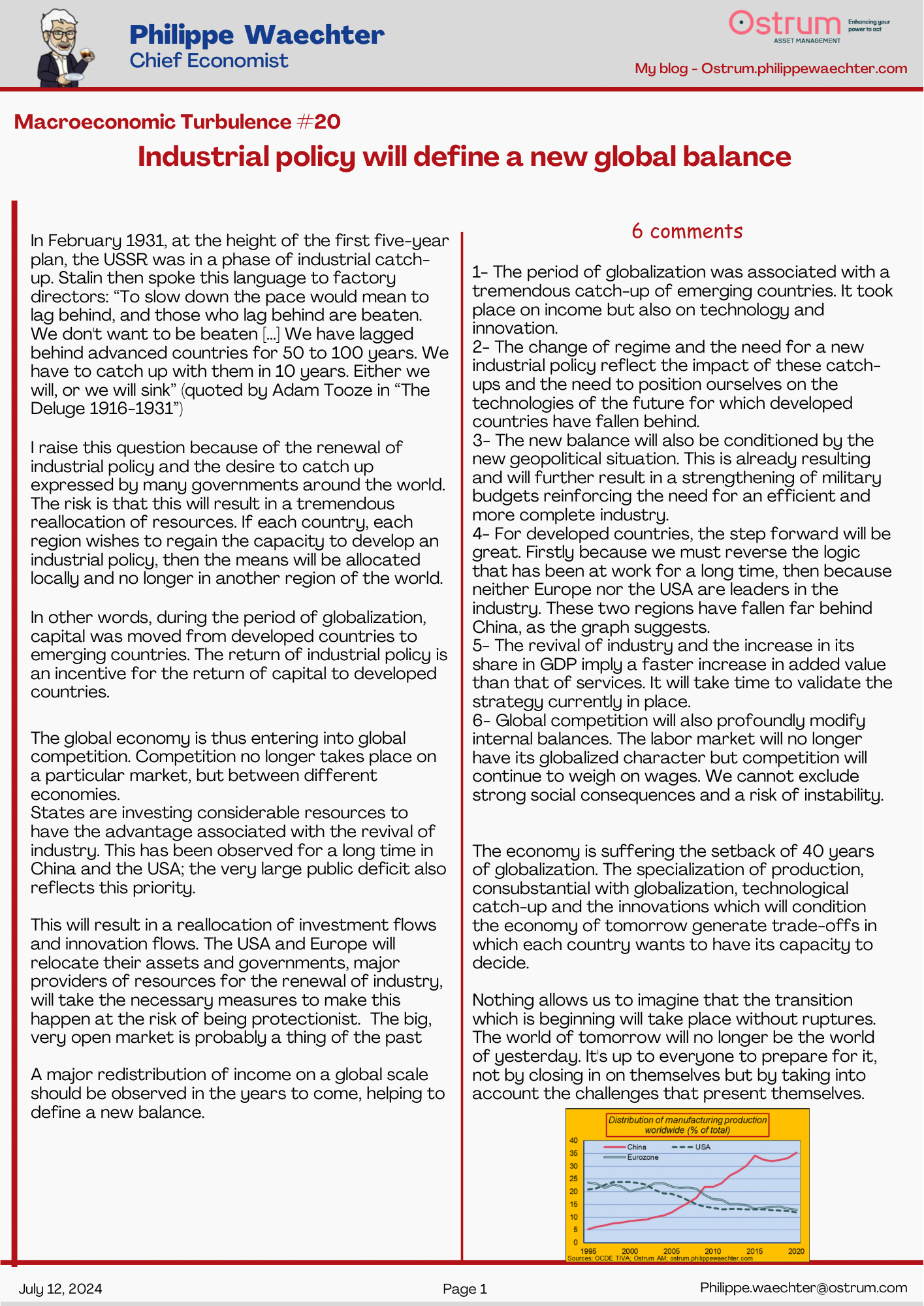Industrial policy will define a new global balance
In February 1931, at the height of the first five-year plan, the USSR was in a phase of industrial catch-up. Stalin then spoke this language to factory directors: “To slow down the pace would mean to lag behind, and those who lag behind are beaten. We don't want to be beaten [...] We have lagged behind advanced countries for 50 to 100 years. We have to catch up with them in 10 years. Either we will, or we will sink” (quoted by Adam Tooze in “The Deluge 1916-1931”)
I raise this question because of the renewal of industrial policy and the desire to catch up expressed by many governments around the world.
The risk is that this will result in a tremendous reallocation of resources. If each country, each region wishes to regain the capacity to develop an industrial policy, then the means will be allocated locally and no longer in another region of the world.
In other words, during the period of globalization, capital was moved from developed countries to emerging countries. The return of industrial policy is an incentive for the return of capital to developed countries……




